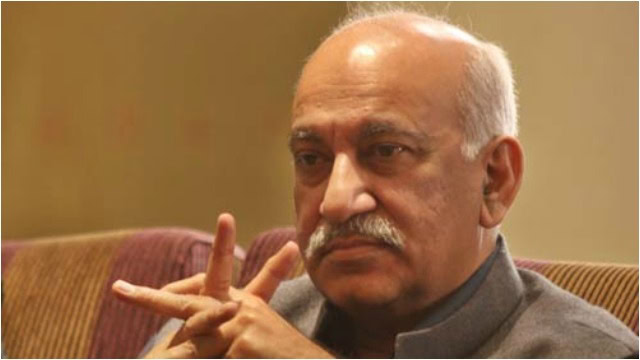New Delhi: It was none other than the current Union Minister of State for External Affairs M.J. Akbar who persuaded the then Prime Minister Rajiv Gandhi to intervene in the landmark Shah Bano case, former Chief Information Commissioner, Wajahat Habibullah has said.
In May 1986, the Rajiv Gandhi government enacted the Muslim Women (Protection of Rights on Divorce) Act, annulling the Supreme Court’s April 23, 1985 decision in the Mohammed Ahmed Khan versus Shah Bano Begum case.
The Supreme Court had ruled that the Section 125 of Criminal Procedure Code (CrPC) — which allowed the estranged/divorced wife to get a maintenance amount from her husband — applied to Muslims as well as there was “no conflict between the provisions of Section 125 and those of the Muslim Personal Law”.
However, the Muslim clergy and several Muslim organisation raised a storm, calling it an intervention in the Shariah, and asked the government to intervene.
Habibullah was at that time a Director in the Prime Minister’s Office (PMO), dealing with matters concerning the minorities.
“I found on my table a slew of petitions and letters criticising the judgement and seeking government intervention to overturn the (Supreme Court) ruling,” Habibullah wrote in a column in The Hindu newspaper on Tuesday.
“I suggested that a reply to go to each of the petitions advising that the petitioners seek a review by the Supreme Court. It seemed awhile that this advice had been accepted, although no response was received to my suggestion,” he wrote.
“Then One day as I entered Prime Minister Rajiv Gandhi’s chamber, I found M.J. Akbar sitting across his table. I found Mr. Akbar had convinced Rajiv that if the government were not to contest the Shah Bano judgement, it would appear to the Muslim community that the Prime Minister did not regard them as his own,” Habibullah wrote.
Akbar, a journalist-turned-politician, was a Lok Sabha member from Kishanganj in Bihar on a Congress ticket between 1989-91. He also served as the official party spokesman. Akbar, who had severely criticised Narendra Modi in the past changed his party to BJP and eventually became a minister. The law was amended by the Rajiv Gandhi government, a move considered retrograde by many.
At present, the Modi government, through the Law Commission, has initiated a move to start discussion on the Uniform Civil Code which has again raised concern among many Muslim leaders, with the All India Muslim Personal Law Board deciding to boycott the commission. At the same time, the validity of the triple talaaq is before the Supreme Court.
Habibullah said that Akbar had argued that the “Muslims needed the reassurance that only an amendment could bring”. Today, Akbar is with a government which says a uniform personal law is desirable.
A former Chairman of the National Minorities Commission, Habibullah has argued that in today’s vitiated communal environment, it would be “best if the apex court were to take on the responsibility of interpreting the law in light of the widely excoriated practice of triple talaq, which in the view of many practising Muslims in not the law”.
–IANS

